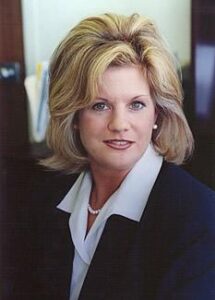Lack of Preparation for Court Costs Clients, the System, and the Lawyers
Judge Kathleen McCarthy speaks with Family Lawyer Magazine publisher and CEO, Dan Couvrette, on what she sees family lawyers could and should do to better prepare for court – and to help the overall system work better.
Press PLAY to listen to the podcast. (Allow a few seconds for loading.)
Dan Couvrette: Can you compare the better-prepared lawyers with the not-so-well prepared lawyers?

So from our perspective, moving our docket rapidly through the court system within our time constraints is important. Lawyers need to come prepared to the case-management conference, which is usually our first opportunity to meet them and the family they are representing. This is an opportunity for the attorneys to come to court, sit down with the other side in one of our conference rooms, discuss the issues that are remaining and find ways to move that case forward. For example, you might want to discuss who you’d want as a mediator, or a real estate expert, or a business expert, and so on.
There will be lawyers who tell their clients not to bother coming to court on this date, and that they’ve got it handled. Often in these cases, they just fly into the courtroom. They don’t speak to the other side, or use the opportunity to bring in their client, or have a four-way meeting. There’s no effort to streamline the process or mediate using their own professionalism – which would also help keep their clients’ costs down.
In a divorce case, there are many opportunities to do an informal discovery, and for attorneys to work with their clients to produce basic financial documentation. I think some lawyers figure that it’s just a court date, and all they need to do is make an appearance.
Are there consequences for being unprepared?
Unfortunately, no. Perhaps there should be. I think different judges handle things in different ways. I try to be cognizant that attorneys have busy lives. I appreciate that, but for a family going through a divorce, that is the only important thing going on in their life, and every time they appear in court is a very stressful experience for them.
Shouldn’t there be a checklist telling lawyers what they need to have for the initial meeting in order to speed up the process and alleviate its complexity?

But the more the lawyer has to prepare, the more the cost is to the client, right?
Yes, that’s true. But of course, you know these are simple documents that are within the people’s discretion and control that speeds along a divorce. It’s quite shocking to me as a judge that these basic documents are routinely not available to the attorneys.
What advice would you give lawyers to do a better job for their clients?
Well, I think explaining what a courtroom can and cannot do for their client is important. Clearly a courtroom and a judge are not equipped to deal with their client’s emotional needs, and clearly the emotional situation involved in a divorce is the most significant. A lot also depends on where a client is at emotionally. I always recommend that lawyers help their clients see a therapist, or at least have therapeutic books their clients can read in their offices, or a list of books that will help them move through that emotional journey. I also strongly recommend sitting down in a four-way meeting with both lawyers and focusing on the budgets and things that the financial professionals routinely do with their clients – but divorce lawyers don’t necessarily think that way.
You’ve been practicing in the area of family law, either as a judge or in private practice as a family lawyer, for 17 years. How have you seen things change over the years?
Well, divorce is certainly more prevalent. I think the stigma is gone. I think if you walked into a room of 50 people, close to 35 will have been divorced at some point. This is much different than it was 17 years ago. So in that regard, it’s a little easier, because everyone knows somebody who has gone through a divorce and can talk with them about it. Also, obviously our economic climate has dramatically changed in the last five to six years. There are fewer and fewer assets. Most people’s primary asset is their pension and retirement, and lawyers today are still ill-equipped to properly deal with dividing those.
I find that having worked with many CDFAs and accountants, that it’s a little surprising more lawyers haven’t brought in that group to help them navigate these issues and to help them see having a pension or a retirement asset can be used in different ways.
The other huge difference is how astronomically the amount of pro se litigants coming through our courtroom has grown. When I started, maybe a quarter of the litigants were without legal representation. Now it has grown to an incredible amount, which I think is a significant disadvantage to the litigants.
What percentage of cases are self-represented now?
I don’t even know if it’s as high as 50%, but it’s on the rise. Also, the number of actual divorces is down because fewer people are getting married. We have so many more paternity and custody cases where people are living together without the benefit of marriage – many of whom are unrepresented. I’m always surprised that in something as significant as a custody or parenting-time dispute, there are so many unrepresented individuals.
It always amazes me how complicated the whole issue of family law is. Would you agree?
Yes, you know there are significant financial issues, pension issues, business issues, custody and parenting time, and child support issues. Truly, the benefit of having developed a family court in so many of our states is that more attention is being called to these significant issues – especially compared to the past.
Judge Kathleen McCarthy is a Wayne County Circuit Court Judge in Michigan, in the family law division. Prior to that, she was a family lawyer and a personal injury lawyer.
Dan Couvrette is a marketing expert to family lawyers and divorce professionals. The CEO of Divorce Marketing Group, he is the publisher of Family Lawyer Magazine and Divorce Magazine.
Published on:







1 Comments
Tasha
This judge is RACIST! Towards black people and does low down evil things to black people that comes before her.